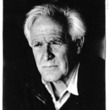Dark star: a novel
Description
More Details
9780307483577
9781449888275
Also in this Series
Published Reviews
Booklist Review
Furst's excursion into the activities of the Soviet intelligence apparat during the late 1930s offers a brilliant and intimate historical profile of Europe on the brink of war. With a sure hand for character development, Furst tracks the career of Pravda journalist Andre Aronovich Szara, whose increasingly complex "small favors" for the NKVD gradually undermine his job as a foreign correspondent and turn him into a full-time spy. Struggling to negotiate a path through a hazardous maze of traitors and power brokers, Szara undergoes a personal struggle for survival that mirrors the conflict taking place on a larger scale among governments. Readers who like their spy fiction realistic and gritty will welcome Furst's latest effort. The author has retained continuity with characters introduced in his previous book, Night Soldiers (Houghton, 1988). Highly recommended. ~--Elliott Swanson
Publisher's Weekly Review
Furst ( Night Soldiers ) will make his mark with this intelligent, provocative and gripping novel. In 1933, Andre Szara, a highly regarded Polish-born foreign correspondent for Pravda , is asked to perform small espionage tasks by the NKVD. These assignments escalate, until Szara finds himself responsible for obtaining vital production figures from a German-Jewish industrialist who fabricates steel wire essential to airplanes. Inevitably, Szara's integrity as a journalist is also compromised. During this period of Stalinist purges, clearly and chillingly described by Furst, only unpredictability is certain. Szara senses the precariousness of his position, which is compounded by an urgent appeal from a wealthy Jewish Frenchman for Szara to honor his own Jewish heritage by trading his steel wire information to the British in exchange for desperately needed immigration certificates to mandated Palestine. Furst depicts the historical, geographic and political context in lucid and highly readable prose; his observation that Russia annexed Lithuania and Estonia while the world's attention was focused on France's struggle with Germany has an eerie timeliness. As darkness descends over Europe, Szara clings to life while simultaneously attempting to make some meaning of it. His story is not a pretty one; but it is beautifully and compellingly told. (Mar.) (c) Copyright PWxyz, LLC. All rights reserved
Library Journal Review
This is an intriguing combination of spy story and historical novel. It is about a Pravda journalist forced to become a Soviet intelligence agent in the years immediately before World War II. It is also about a Europe being driven into war, not simply by supposedly irresistible social forces but by the genuinely evil men who manipulate and direct events. Seen in this way, Stalin is as responsible for the coming of war as Hitler, and Stalin's Russian purges signal the future deaths of millions in Central Europe. Agents in this novel are not just spies but metaphors for the actors, large and small, on the stage of history. Entertaining, exciting, and thought-provoking reading.-- Charles Mi chaud, Turner Free Lib., Randolph, Mass. (c) Copyright 2010. Library Journals LLC, a wholly owned subsidiary of Media Source, Inc. No redistribution permitted.
Kirkus Book Review
Furst, who has progressed from spy sendups (The Paris Drop, 1980) to first-class spy fiction (Night Soldiers, 1988), turns in an exceptionally fine novel about a man progressing from Soviet journalist to Soviet spy and onward in the 1930's. Until he is made the unwilling recipient of shattering evidence of Stalin's prerevolutionary treachery, Pravda correspondent AndrÉ Szara, a secular Polish-born Jew, has had the good fortune to be untouched by Stalin's purges--mass murders amounting to a pogrom at the highest level of government, clearing the Jewish intellectuals out of the central Party machinery. Why has Szara been saddled with the horrifying incriminating documents? He would like nothing better than to stay clear of the political infighting. But his scrupulously loyal revolutionary journalism is ultimately no protection for the writer; the intelligence apparat requires him to dip into a little espionage, and as the Nazis continue to prosper and war becomes more of a threat for the motherland, spying overshadows writing. He becomes an operative in Paris. Szara's primary asset, however, is a Berliner--the Jewish owner of a factory making a strategic material for the Wehrmacht. As Szara spies for the NKVD, slipping in and out of Nazi Germany, he spies also for the anti-Stalinist shadow intelligence network that provided the mysterious evidence of the Generalissimo's early sins. Then his efforts prove too effective as he uncovers what appears to be most secret German-Russian complicity. Battered by his secrets, Szara survives and even grows, becoming an essential part of efforts to get Jews out of Europe and into Palestine and then a witness to the Nazi invasion of Poland and the Soviet acquiescence to that act. From time to time there are nights of love with women as scared as he is. Then it is time to save himself. Kafka, Dostoyevsky, and le CarrÉ sit up all night and talk to each other and this is what you get. It is absolutely wonderful. Copyright ©Kirkus Reviews, used with permission.
Library Journal Reviews
This is an intriguing combination of spy story and historical novel. It is about a Pravda journalist forced to become a Soviet intelligence agent in the years immediately before World War II. It is also about a Europe being driven into war, not simply by supposedly irresistible social forces but by the genuinely evil men who manipulate and direct events. Seen in this way, Stalin is as responsible for the coming of war as Hitler, and Stalin's Russian purges signal the future deaths of millions in Central Europe. Agents in this novel are not just spies but metaphors for the actors, large and small, on the stage of history. Entertaining, exciting, and thought-provoking reading.-- Charles Mi chaud, Turner Free Lib., Randolph, Mass. Copyright 1991 Cahners Business Information.
Publishers Weekly Reviews
Furst ( Night Soldiers ) will make his mark with this intelligent, provocative and gripping novel. In 1933, Andre Szara, a highly regarded Polish-born foreign correspondent for Pravda , is asked to perform small espionage tasks by the NKVD. These assignments escalate, until Szara finds himself responsible for obtaining vital production figures from a German-Jewish industrialist who fabricates steel wire essential to airplanes. Inevitably, Szara's integrity as a journalist is also compromised. During this period of Stalinist purges, clearly and chillingly described by Furst, only unpredictability is certain. Szara senses the precariousness of his position, which is compounded by an urgent appeal from a wealthy Jewish Frenchman for Szara to honor his own Jewish heritage by trading his steel wire information to the British in exchange for desperately needed immigration certificates to mandated Palestine. Furst depicts the historical, geographic and political context in lucid and highly readable prose; his observation that Russia annexed Lithuania and Estonia while the world's attention was focused on France's struggle with Germany has an eerie timeliness. As darkness descends over Europe, Szara clings to life while simultaneously attempting to make some meaning of it. His story is not a pretty one; but it is beautifully and compellingly told. (Mar.) Copyright 1991 Cahners Business Information.

















































